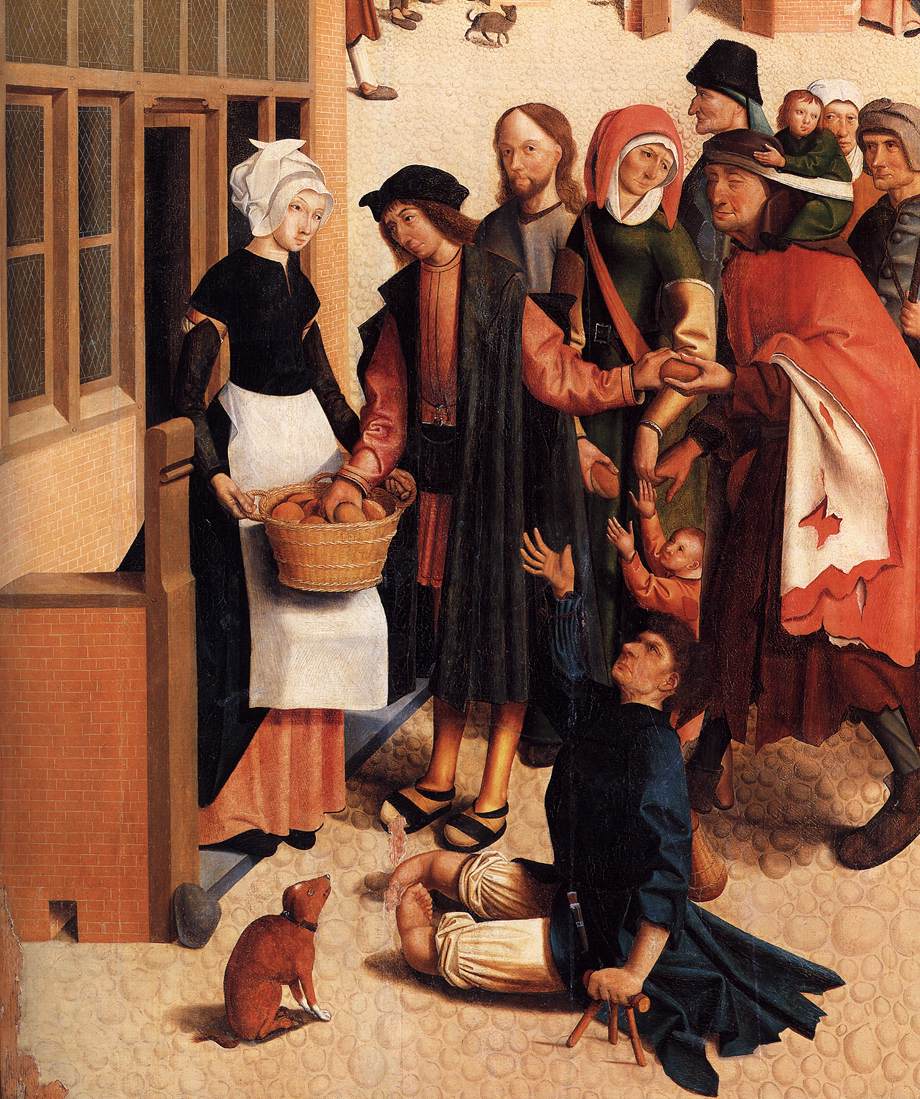Somehow I stumbled upon Dorothy Day’s 1949 essay, “The Scandal of the Works of Charity,” and found it challenging enough to ask if it is possible for 21st century Christians to reclaim a life of charity based on the Gospel of Jesus Christ. Can we who profess Jesus Christ as Lord and Savior, worship the Blessed Triune God through the Divine Liturgy (or the Sacrifice of the Mass) assist our brothers and sisters in need?
According to Day, Peter Maurin has an answer for us to consider and to enact. In part he says,
To get to the people, he pointed out it was necessary to embrace voluntary poverty, to strip yourself, which would give you the means to practice the works of mercy. To reach the man in the street you must go to the street. To reach the workers, you begin to study a philosophy of labor, and take up manual labor, useful labor, instead of white collar work. To be the least, to be the worker, to be poor, to take the lowest place and thus be the spark which would set afire the love of men towards each other and to God (and we can only show our love for God by our love for our fellows).
Striking is Day’s comment that “WE ARE ALL devoured by a passion for social justice today” given all the talk and public demonstration for racial justice today. I tend to think that secular and church people alike have an anemic even wrong sense of what constitutes justice and social reform. Much of the rhetoric is pure fantasy –shallow at best. What is missing in the conversation and in action is Jesus Christ. What is missing is having, knowing, loving the Savior at the center of everything. What is missing is prayer: the sacred Liturgy (Mass and Divine Office, personal and corporate). What got my attention in Day’s essay is her mentioning of the Catholic spirituality she fostered:
We have daily Mass at the Farm, and we are permitted by the Chancery Office to have the Blessed Sacrament at all times while a priest is with us and we are blessed in having an invalided priest visiting us these past fifteen months or so. We have Prime and Compline, we have sung Masses for all the big feast days, we have reading at the table during retreats, and sometimes when there is no retreat but a feast day to be celebrated.
The loss of the Center means the acceptance of alternative forms of centering; if Christ is not the center then the vacuum will be filled by something counterfeit. It seems to me that Catholics have forgotten the source and substance of Day and Maurin and the cloud of witnesses (saints). The people who have really forgotten the Day-Maurin source and substance are those who run Catholic Worker Houses with their secular agenda and no Christ-center. Of course, there are a few exceptions like the Catholic Worker House operated by Larry Chapp and his wife in Pennsylvania.
The works of Charity, spiritual and corporal, are revealed in the Gospel but are also found in the Old Testament. But sticking with the Christian dispensation I notice that there is typically no mention of Jesus’ Good Word in the sermonizing of the clergy. The Catholics of East and West have neglected to preach on Matthew 25 while giving good witness to the scope of what of is revealed. The result is that real face of the faith community’s “performance of the works of mercy” has become bourgeois and has virtually vanished. This neglect has contributed to the crazy-talk of what justice really means and why we all need to have a concern for matters of justice.
If we are going to be serious about the recovery of Works of Mercy we need allow our hearts and minds and hands be moved by the Gospel and good worship of God. Nothing fake and scandalous. The true scandal of the Works of Mercy is that it forces us to move from being self-made persons to the recognition that we are the Lord’s. The injustices we face today, then, are resolved in true faith in the Heart of Christ. It is there we know to whom we belong.
